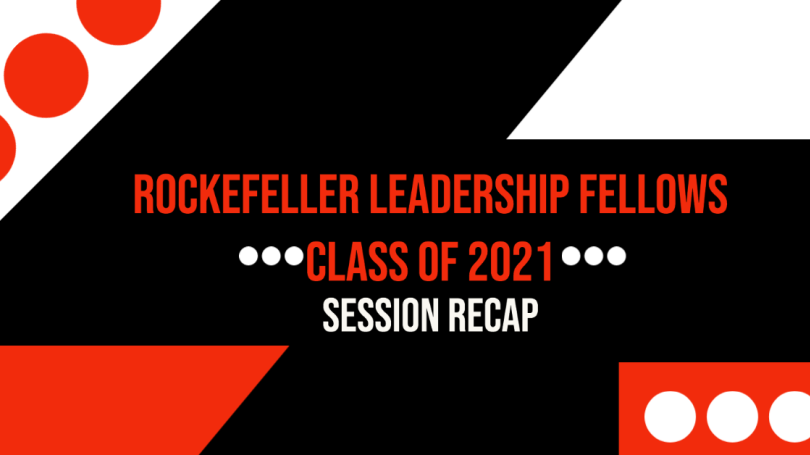
- Public Policy
- Leadership
- Funding
- News & Events
- About the Center
Back to Top Nav
Back to Top Nav
Back to Top Nav
Back to Top Nav
The third session of the term was hosted by Professor Charles Wheelan, the Rockefeller Center’s own Professor of Public Policy and member of the Dartmouth Class of 1988. The focus of the session was on the importance of language in leadership and understanding how to leverage the power of words to achieve success that benefits all. Professor Wheelan has a wealth of relevant experience to this topic, as he has devoted much of his career to communicating difficult ideas in accessible ways and working to connect people on opposite sides of controversial issues. The Fellows benefited from his imparted experience and enjoyed an engaging and enlightening evening with the Professor.
According to Professor Wheelan, it does not matter how good of an idea you develop if other people do not appreciate the idea’s value; you have to persuade people your idea is a good idea or else it won’t happen. To help the Fellows understand how to achieve this critical task, Professor Wheelan told the Fellows about the “strategic resonance of language,” which means using language in a way that the words resonate with people emotionally, typically in a positive manner. In policy, as Professor Wheelan focused on specifically, as well as in other disciplines, framing is a technique for guiding the focus of an audience to the emotional center of an issue.
As young and developing leaders, understanding how to effectively communicate is a fundamental step to earning the trust and respect of colleagues and superiors. Through the intentional and considerate use of language, leaders can achieve desired outcomes faster by removing obstacles and greater support. Explaining a goal to stakeholders in language that resonates with their values can engender deeper support and help leaders reach across divides to connect with those that may sometimes stand in opposition to their values or goals. Language is a powerful tool available to all attentive leaders.
Of course, as Processor Wheelan advised the Fellows, it is incumbent upon leaders to use language responsibly and in good faith. Triggering emotional responses through the weaponization of language to realize personal ends or harm others is not the action of a strong leader. Understanding what type of framing is acceptable and when strategic language use is appropriate and ethical is just as important as understanding how to strategically use language to achieve goals. In addition, it is also important as developing leaders for the Fellows to be aware of how language impacts them and pushes them to react in specific ways. Learning to recognize strategic framing of issues and react more logically to those issues beyond the emotional reaction triggered by the language is another skill the Fellows were instructed to develop by Professor Wheelan.
-Written by Maria Smith-Lopez, Class of 2021 Rockefeller Leadership Fellow and Student Program Assistant
As Rockefeller Leadership Fellows, seniors gain a better understanding of the qualities and responsibilities expected of leaders. As Fellows take part in the workshops, discussions, and team-building exercises, they examine their skills, qualities, and attributes as leaders and analyze how these influence teamwork and achieving goals.